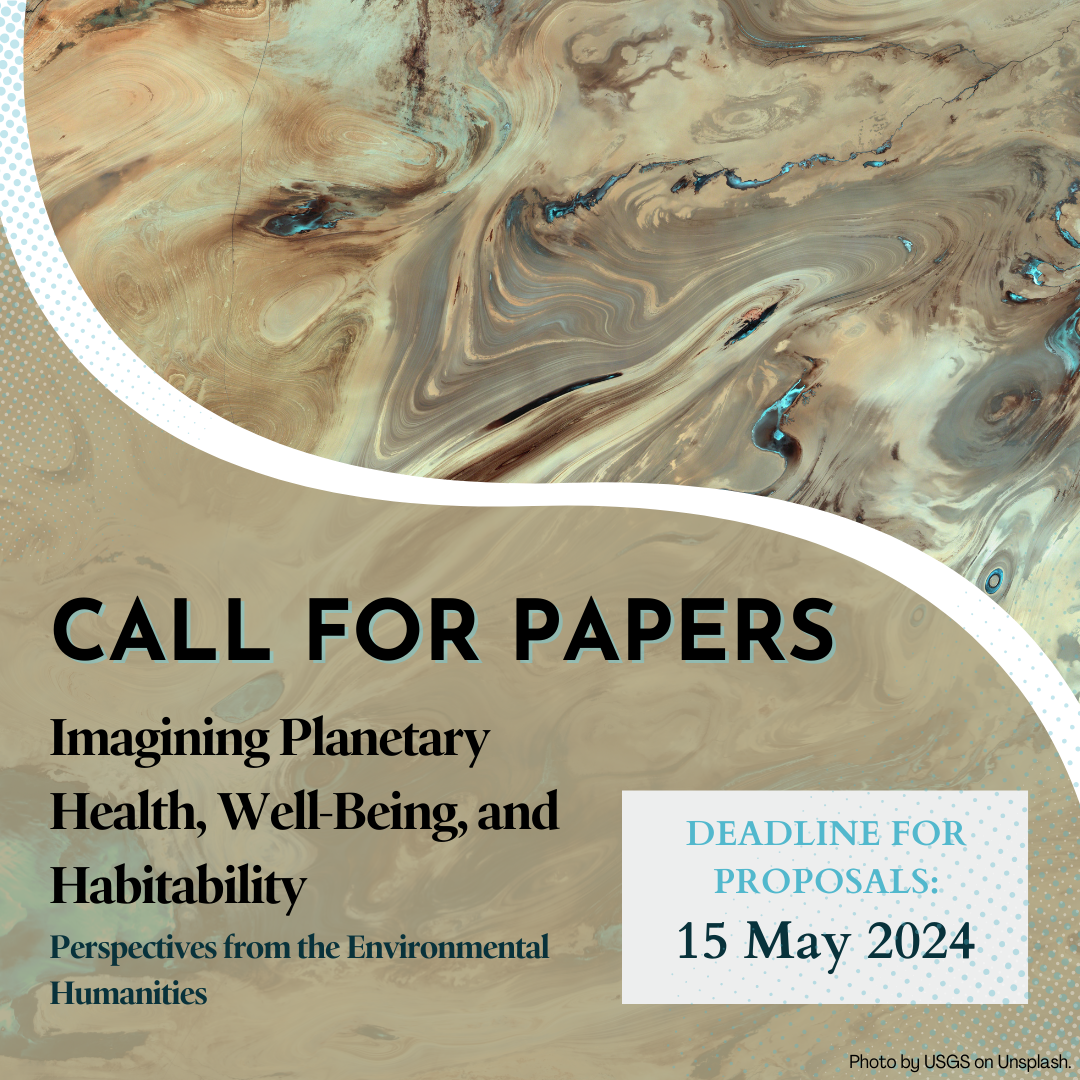Call for Papers: “Imagining Planetary Health, Well-Being, and Habitability”
18.03.2024
Organizers: Lijuan Klassen and Christof Mauch
Venue: Evangelische Akademie Tutzing, Schlossstr. 2+4, 82327 Tutzing, Germany
Date of the workshop: 2–4 October 2024
Submission deadline: 15 May 2024
Keynote Speakers:
Ursula K. Heise (University of California, Los Angeles)
Jennifer Gabrys (University of Cambridge)
Malcom Ferdinand (Paris Dauphine University - PSL, National Centre for Scientific Research [CNRS])
Future scenarios involving demographic pressure, pandemics, and climate migration present new challenges to multi-species coexistence by rendering parts of Earth uninhabitable. These developments and tendencies have stimulated the rise of new research paradigms, such as “planetary health” (Whitmee et al. 2015) and “planetary well-being” (Elo et al. 2023), which seek to establish an integrative notion of human and animal health as well as the health of organic and inorganic systems. So far, these concepts have mainly been informed by the medical and earth system sciences, but planetary health and well-being must also be discussed in light of the ethical, philosophical, aesthetic, and political questions they provoke—questions that are now being addressed and discussed within the environmental humanities.
From a humanities perspective, we may ask what novel understandings arise from imagining health and well-being—encompassing sickness, mourning, toxicity, and extinction—on a planetary scale. How must planetary health be reconfigured, when the planetary is not understood merely as “a settled unit of analysis” within a whole-earth-system view, but rather as “a figure of collective responsibility and environmental relation” (Gabrys 2020)? What forms of attunement and analysis are necessary to address a multi-species health collective and their demands for justice (Heise 2016)? Such questions are posed against the background of continuously transgressed climatic tipping points and ecological boundaries, leading to inevitable shifts in the earth’s systems. As these changes are irrevocable, planetary health cannot merely be a question of finding a cure that would reinstate a past state of the earth. This does not mean that all is lost, but rather, it stresses the dire necessity to overcome the destructive modes of inhabiting the Earth (Ferdinand 2022), including fossil-fueled capitalism (Malm 2016), plantation monocultures (Tsing 2015; Chao 2022), and colonialism and slavery (Clare 2013; Yusoff 2018). Planetary health therefore also raises the question of Earth’s habitability—a question, precisely, of how to live well and ethically together on a planet whose habitable space is increasingly shrinking.
In this workshop, we aim to gather scholars from around the world who conduct research in the environmental humanities, philosophy, history, anthropology, science and technology studies, ecocriticism, health humanities, political ecology, and related fields. Participants are encouraged to critically engage with the concepts of planetary health and planetary well-being through themes including—but not limited to—care, justice, and habitability. Possible questions to address are:
- What are the genealogical roots and conceptual limits of planetary health and well-being? Which are the new perspectives, values, and frames of perception that these concepts engender? And which relations, localized practices, and knowledges do they obscure?
- How can and how should planetary habitability be defined? What are the conditions for habitability and through which imagined technologies or infrastructures is a habitable space, a habitat, and a home created and maintained? For whom are these spaces created?
- How are issues of planetary health, well-being, and habitability narrated and represented across media, art, and architecture, and who or what is represented by them? How do such representations deal with vast, abstract notions, such as planetary deep time, climate change, and ecological uncertainty?
- What are alternative approaches and cosmologies to health and well-being, such as “buen vivir” and the “rights of nature” that incorporate the more-than-human worlds and material surroundings?
- How could global healthcare infrastructures and politics be transformed in light of these approaches?
The workshop is part of a project titled “Strengthening the Environmental Humanities” at the Rachel Carson Center (RCC) and is funded through the Volkswagen Foundation’s project “University of the Future.” It is organized by the RCC in cooperation with The Munich Science Communication Lab (MSCL). Applications are open to everyone, but priority will be given to early-career scholars (doctoral candidates, post-docs, and junior researchers). The language of the workshop is English.
This workshop is an in-person event only. Accommodation at the Akademie will be covered by the RCC. In case of a successful application, travel subsidies (in the form of a lump sum) will be provided, with a priority for young scholars with limited access to resources.
How to apply:
Send an abstract (max. 300 words) together with a bio (max. 100 words) and a short CV that lists any relevant publications to conferences@rcc.lmu.de by 15 May 2024. Successful applicants will hear back from the organizers in the week of 17 June and will be asked to submit a paper (2000–3000 words) by 10 September to be circulated before the workshop.
Downloads
- CfP Planetary Health (249 KByte)


